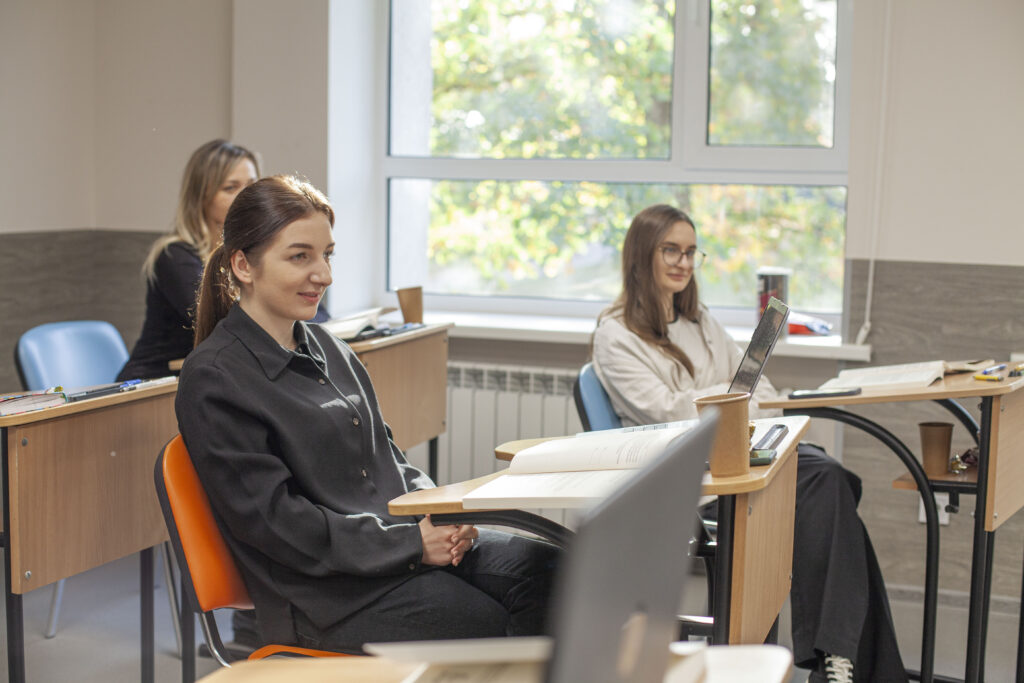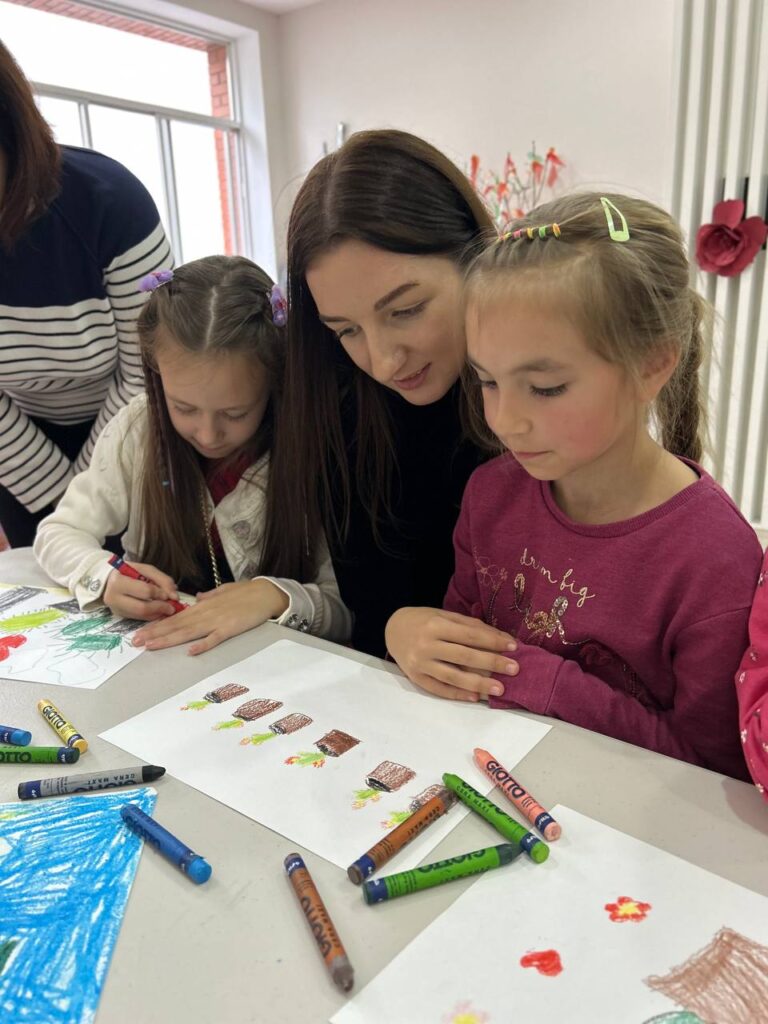
This is an interview with Nataliya Maksymovych, a member of and minister at the Philadelphia church in Kyiv, a practicing child counselor and 4th year student of the UETS Counseling Program.
Could you tell us what was your journey to becoming a counselor?
When my younger brother died, I remember myself crying during one of my night shifts, feeling really bad. I prayed for God’s comfort, and right there, in that moment, I felt Him lifting up my burden. It was a really supernatural experience of God’s comfort. It was a very strong feeling.
I know that many people who have not yet accepted God as their personal Savior find themselves in much worse situations, and they do not know where to look for comfort. But they need it just like I did. So, I decided that I want to be that person through whom God can serve others. I wanted to do it professionally and decided that studying psychology would help me. It was at the end of 2019, when I was already finishing my master’s degree in a different discipline, that I started looking for Christian educational institutions that had programs in psychology. And so it happened that UETS had a program that suited me.
I saw that at UETS, I could study psychology from scratch and combine it with the study of theology in order to become a counselor with a Christian worldview and thereby serve people.
So, I studied at UETS but continued to work in knitwear production. As 2022 was coming to an end, I was invited to an interview at the Children’s Medical Center, “Pediatrician and Me.” At first, I had a strong conviction that I would not be working with children because it is very difficult. But I decided that I should start with child psychology, even in spite of my inner resistance. I have been working there for ten months now. This is a very difficult path for me. There is a lot to learn all the time, a very large flow of clients, and a lot of different children with difficulties. I do consultations, find out their diagnoses, come home and start checking, looking for materials, and consulting with other specialists in the clinic. I already have some experience in it, but I have a lot of support from my colleagues, seminary teachers, and fellow classmates who also do counseling.

What do you strive to achieve or change through your work?
I want to influence people. For me, this means to professionally help them overcome their life difficulties both as a psychologist and as a Christian — to convey Christian values to them.
How can you convey Christian values to people through work in counseling?
When people first come for a consultation, I immediately say that I am a psychologist with a Christian worldview and that I have certain beliefs. A Christian must have the courage to call a sin as it is, at the same time, not to judge a person and not forcefully sway him in favor of his decisions. A person should always make any decision by themselves. And I shall be the one who stays by their side, helps, and supports them on their way. At this moment, it is important for me as a Christian not to lose either the Christian foundation on which I stand or the person I counsel.
How does your church feel about you counseling children?
I am very grateful to Philadelphia Church, our pastors, and ministers, as they are very open-minded about this. Once I had such a desire to do this ministry, I approached one of the ministers and told him about it. They fully supported me, but there was a certain dialogue. They asked me what my education was, what my experience was, where I studied, and how I planned to combine psychological counseling with Christianity. I was very pleased that they said: as soon as any difficulties arise, you can come to us and talk. Such great support really inspires me to serve our church.
I wish other churches had a person with a professional education in psychology and developed a comprehensive approach to treating people, where they can provide psychological support, pastoral counseling, and serve people’s physical needs.

What questions do you ask yourself to do your ministry more effectively?
Do I pray for clients? Before, I did not always practice praying for those who came to me. There were times when it was incredibly difficult for me to work in the clinic, and I really prayed for these children and their parents that God would show me how to work. I didn’t always do it at work, but when I counsel at church, I always pray, and the result is just amazing. We start working faster and easier. A person easily finds a way out. The difference in how fast the result comes when I do not pray and do pray is very easy to trace. Sometimes, I go home, analyze the consultation, and think: “Wow, I couldn’t have said that myself!”. I know that it is God speaking through me – it is impressive and even more inspiring to convey these Christian truths to people. It is also important not only to pray yourself during consultations but also to encourage the person to pray as well.
Can you tell a specific story of how your work changed someone’s life?
There was one girl with anxiety disorder and stuttering whom I counseled. We would be drawing with her every time she came for a consultation. In general, art therapy is often a good way to interact with children. She constantly drew pictures of missiles flying to the ground and exploding. While drawing, she was releasing her anxiety. We also played with her and, of course, talked a lot. Just last week, I had a consultation with her. For the first time, she drew something like a heart or a flower. And she stopped stuttering.

And our last question: what dream would you like to realize in the future?
My dream is to become a systemic family therapist and work with people at church as well as outside. Systemic family therapy is about influencing the whole system. A family is a system, and when one element changes, the whole system changes. I am impressed by this approach because it overlaps very nicely with the Christian worldview and with serving people at church. It is a way to influence the whole family. And this approach is long-term. When the whole family comes for counseling, they undergo therapy together, and they are being healed – they become a healthy system. And even if someone fails in a healthy system, the system is able to support him. And vice versa, when a person goes to counseling alone, he receives treatment, but then he returns to the system and may fail again because he does not have the support. Therefore, I consider this approach in psychology very effective, and this is my plan for the future.

